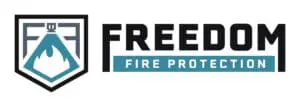FAQS
Frequently Asked Questions
Residential
Am I required by law to have a fire protection system in my home?
Yes. The State of California and the Office of the State Fire Marshall mandated that beginning in 2011 all one and two-family dwellings and townhouses built will require an automatic fire sprinkler system.
“Effective January 1, 2011, the California Building Standards Commission approved the State Fire Marshal’s Building, Fire and Residential Code adoption packages for the 2010 California Building Standards Codes, including its requirements for residential fire sprinklers in all new one-and two-family dwellings and townhome construction statewide.”
How much does a fire protection system cost?
The cost per fire sprinkler system will vary and is dependent upon the following factors:
- Square footage and number of rooms
- Ceiling aesthetics, i.e. vaulted ceilings, beams, soffits, etc.
- Available water pressure
It’s best to have us give you a quote for your specific project. We will need a copy of your architectural drawings, including the reflected ceiling plan and site plan to give you an accurate bid.
Is there a risk of the sprinklers going off by accident and ruining my home?
The only reason a fire sprinkler would go off accidentally is if it was hit or damaged. When heat activates a sprinkler head(s), only heads in that area will dispense water to extinguish the fire.
My home freezes in the winter. Are there precautions to make sure my sprinkler pipes don’t freeze?
You have a few options pertaining to freeze protection. 1) An Anti-freeze system, in which a solution of water and anti-freeze is in the pipes rather than water alone. When a head activates, the solution is dispensed first then regular water will flow through the piping. 2) Insulation of CPVC piping and surrounding space.
Do I need to have any regular maintenance done on my home sprinkler system?
We will supply you with instructions on how to test your system annually to ensure the alarm bell is working and activates upon water flowing through the system.
Commercial
Am I required by law to have a fire protection system in my business?
NFPA has many requirements, and there are a few exceptions to the rule, but the short answer is yes.
How often do I need to have my system inspected and certified?
How much does a commercial sprinkler system cost?
The cost will vary based on the type of project and classification. It is best for us to give you a specific bid for each individual project.
How long does the process take?
Depending upon the type of project, it could take a few days to a few weeks and possibly up to several months. We do our best to meet your construction timeline as best as we can. There are many variables with construction, and we are at the mercy of the local Authority Having Jurisdiction (AHJ) when it comes to plan review and permits. It’s best to get us involved as soon as you begin your project and permit process.
How do I know if I am a light hazard fire risk or a high hazard fire risk?
Each industry has its own classification and code requirements per the NFPA. For example, an office space is Light Hazard. A restaurant kitchen is Ordinary Hazard. A high-pile storage warehouse could be Extra Hazard. Each type of project will have its own classification. We can assist you with your specific project.
Do you conduct repairs on older sprinkler systems?
Depending on the condition of the existing system, demolition may be a factor. Many times, some system components can easily be replaced. Contact us to discuss.
When should I get my old commercial sprinkler system replaced?
Fire sprinkler systems can be very old and still do their job to operate as intended. If your piping is rusting or the heads have been recalled or covered with paint or thick dust or grime, we should talk.
What is MIC?
MIC means “microbiologically induced corrosion.” This is a corrosion caused by microbes in the water that feed off of the piping, leading to tiny holes and the possibility of a pressurized explosion. It is your due diligence as a business owner or homeowner to have your fire sprinkler systems inspected for MIC. FFPI is certified to identify and treat MIC in your fire sprinkler installations.

